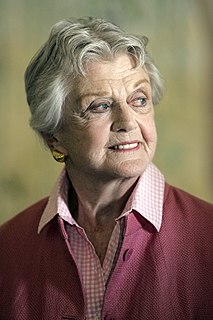A Quote by Bill Ayers
Whether or not the working class came to Chicago in 1969 in the Days of Rage is not a measure of their commitment to stopping the war or to seeing life in certain way. There were very few of us who were there, and those of us that were had an illusion about ourselves.
Related Quotes
The advertising men made it clear that there were two ways of looking at ideas in a war against fascism. Those of us who were working on the project believed ideas were to be fought for; the advertising men believed they were to be sold. The audience, those at home in wartime, were not 'citizens' or 'people.' They were 'customers.'
Women: I liked the colors of their clothing; the way they walked; the cruelty in some faces; now and then the almost pure beauty in another face, totally and enchantingly female. They had it over us: they planned much better and were better organized. While men were watching professional football or drinking beer or bowling, they, the women, were thinking about us, concentrating, studying, deciding - whether to accept us, discard us, exchange us, kill us or whether simply to leave us. In the end it hardly mattered; no matter what they did, we ended up lonely and insane.
We thought that the odds of things working OK were up in the upper 90 percent or we wouldn't have gone. But the - there were some problems cropped up on the flight but was able to take care of those OK and - although they were things that we hadn't really trained that much for. But it was the time of the Cold War and so there were was a lot of pressure on the - to get going and the Russians were claiming that they were - Soviets were claiming they were ahead of us in technology.
We were together because we were addicted to each other. I was never as intoxicated as I was when we were happy together, and I knew it was the same for him. We were putting ourselves through the wringer for those moments of perfection between us, but they were so tenuous that only our stubbornness, determination and love kept us fighting for them.
Our enemies didn't adhere to the Geneva Convention. Many of my comrades were subjected to very cruel, very inhumane and degrading treatment, a few of them even unto death. But every one of us - every single one of us - knew and took great strength from the belief that we were different from our enemies, that we were better than them, that we, if the roles were reversed, would not disgrace ourselves by committing or countenancing such mistreatment of them.
Woodfall wasn't deliberately telling working-class stories, but John Osborne and other writers who were involved with them were writing those stories, which had never really been written before. The working-class person always had to have an accent before, was often a joker, and peripheral. At Woodfall, they were driving the film.
The pictures that were coming from Vietnam were showing us what was really happening on the ground level. It was in contradiction to what our political and military leaders were telling us. They were straight forward documentary images. A powerful indictment of the war, of how cruel and unjust it was. When I finally decided what to do with my life, it was to follow in that tradition.
I shared a vagrant optimism that some of us were making real progress, that we had taken an honest road, and that the best of us would inevitably make it over the top. At the same time, I felt that the life we were leading was a lost cause, that we were all actor, kidding ourselves on a senseless odyssey. It was the tension between those two poles - a restless idealism on one hand and a sense of impending doom on the other - that kept me going.






































